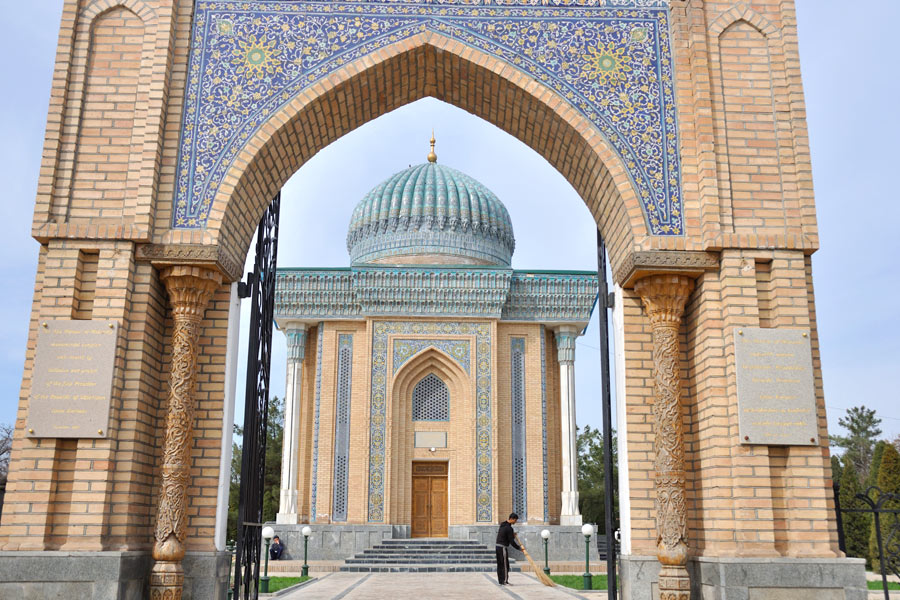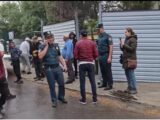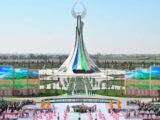Samarkand: Evictions in the UNESCO protected area?
03.04.2025This year, according to the Decree of the President of the Republic of Uzbekistan dated March 14, 2025, Uzbekistan will widely celebrate the 1155th anniversary of Imam Abu Mansur al-Maturidi al-Samarkandi, a medieval Islamic thinker who had a significant influence on the development of Sunni theology, especially among the followers of the Hanafi madhhab. He was born and lived in Samarkand. Al Moturidi’s mausoleum is located near the famous Chokardiz cemetery, where many prominent figures and scholars of the past centuries are buried.
March 20, 2025, the Council of People’s Deputies of Samarkand region, issued the Resolution VII-9-39-7-0-K/25 approving the “ Presentation on withdrawal of land plot for public needs and on authorization and open discussion with owners”
The Council of People’s Deputies of Samarkand region said it was guided by some “special” resolution of the Cabinet of Ministers dated February 25, 2025
The Regional Council approved some prezentation materials without announcing their author. This “prezentation” suggests withdrawal of land for public needs from the owners of 220 residential and non-residential objects in the territory adjacent to the Chokardiza cemetery in Samarkand city, in connection with the reconstruction of Imam Moturudi complex, and from the owners of 5 residential and non-residential objects in Dahbed settlement of Akdarya district, in connection with the reconstruction of Makhdumi Azam complex, taking into account the improvement of both territories and infrastructure and construction of a large pilgrimage center.
The Regional Council, saying to be based on the requirements of the Law “On procedures of withdrawal of land plots for public needs with compensation”, authorized local authorities to hold an open discussion with the owners located in the respective territories.
The department of regional khokimiyat on coordination of land plot withdrawal and compensation is entrusted to publish this decision on the official website of khokimiyat and in mass media.
The Annex No. 1 to the resolution of the Samarkand Regional Council of People’s Deputies No. VII-9-39-7-0-K/25 dated March 20, 2025 presented the LIST of addresses of residential and non-residential objects envisaging resettlement for public needs, on the territories of which it is planned to create a large Pilgrimage Center.
This document also includes two sites from the list of Cultural Heritage of Uzbekistan: the mosque Faqih Abu Lays and Chilla Mozor ziyoratgohi. Their fate is unclear.
This area is under the protection of UNESCO.
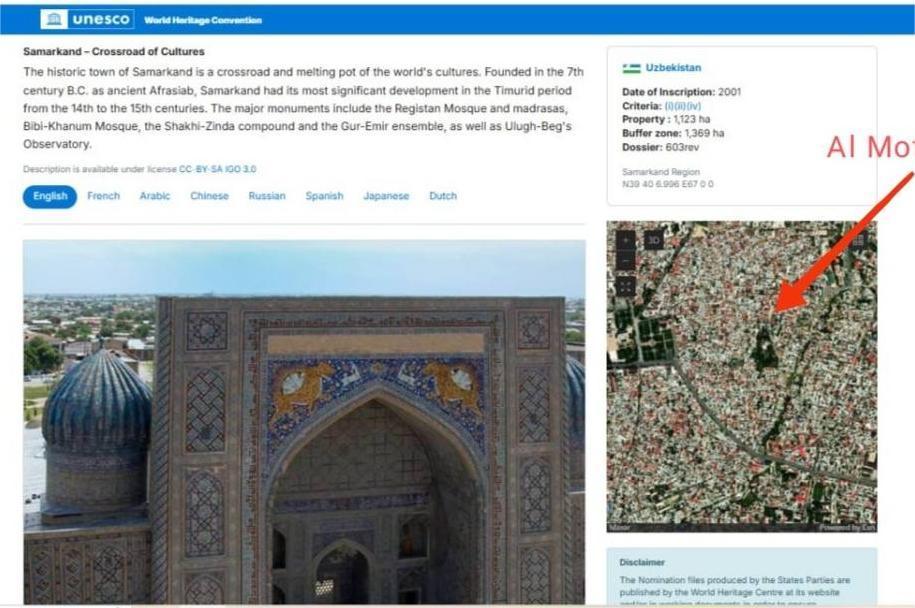
Credit by Diora Rafieva
Resolution of the Cabinet of Ministers of the Republic of Uzbekistan No. 119 of 03.03.2021. “On measures to strengthen the protection of tangible cultural heritage sites and territories inscribed on the UNESCO World Heritage List”, states that the territories of Uzbekistan inscrided in the UNESCO World Heritage List are specially protected historical and cultural territories, and the projects of planned construction and improvement works in them must be carried out with the mandatory approval of the Agency and the UNESCO World Heritage Center
Article 30 of the Law of the Republic of Uzbekistan “On the Protection and Use of Cultural Heritage Sites” states as following:
A historical and cultural reserve is a territory or part of a landmark territory with monuments and ensembles located within its boundaries, on which a special regime is established to ensure the preservation of objects of tangible cultural heritage in unity with the historical environment surrounding them, the territorial integrity of the historical and cultural reserve, as well as the regulation of construction and economic activities within the boundaries of this territory.
If museums are established on the objects of tangible cultural heritage that are part of the historical and cultural reserve and the natural landscape associated with them, as well as if it is necessary to restore traditional economic and other activities on the territory of the historical and cultural reserve, the historical and cultural reserve is a museum-reserve.
“A 1,500-seat mosque, a conference hall, a scientific center, a parking lot, catering outlets, and hotels will be erected here,” the Samarkand Vestnik newspaper reported.
The current mausoleum of Imam Fl-Maturidi was erected in 2000 on the initiative of the previous President of Uzbekistan I.A.Karimov. Since then, the facade has been restored three times.
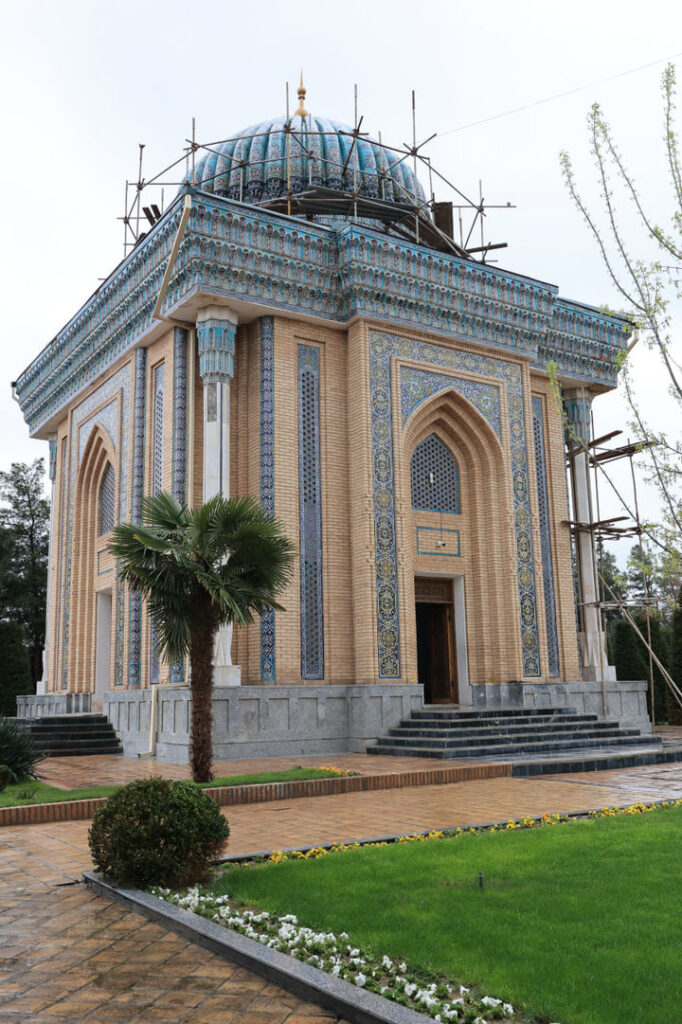
https://sv.zarnews.uz/post/predstavlen-nove-proekt
Residents of Samarkand note that the Resolution of the Regional Council disregards heritage protection laws, failing to reference them either de jure or de facto. Moreover, it selectively applies provisions that allow for evictions in cases of public need. The decision is reportedly based on a “special order of the Cabinet of Ministers,” but no registration number is provided, and the order itself remains unpublished.

Diora Rafieva , a lawyer from Samarkand, announced on the Facebook account to have submitted the official request to the Ministry of Justice with the following questions:
- Providing the copy of the “Special Resolution of the Cabinet of the Ministers of the Republic of Uzbekistan from February 25, 2025;
- What normative legal acts, regulations, instructions, guidelines regulate “special resolutions” of the Cabinet of Ministers?
- Did the “special resolution” of the Cabinet of Ministers of 25.05.2025 undergo state registration by the Ministry of Justice?
- Did the draft official document undergo mandatory legal and anti-corruption expertise?
- Was there a public discussion of the draft of this act?
- Has this official document been published?
- Is the above document a normative legal act?
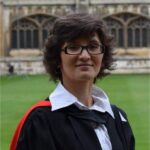 Lawyer from Tashkent, Guljakhon Amanova, points out that this decision is completely contrary to international law. Below is her statement in a social media discussion
Lawyer from Tashkent, Guljakhon Amanova, points out that this decision is completely contrary to international law. Below is her statement in a social media discussion
“Eviction of citizens, land seizure and demolition, under the pretext of “public needs” on the basis of a “special decision” of the Cabinet of Ministers is illegal because it violates national legislation, international obligations of the Republic of Uzbekistan and fundamental principles of protection of the right to housing:
- It violates the Constitution of the Republic of Uzbekistan, including the principles of inviolability of rights, proportionality and judicial protection.
- It contravenes Uzbekistan’s international obligations, including CESCR, ICCPR and General Comments No. 7 and No. 16.
- It creates legal uncertainty, violating the principle of legality and legal predictable regulation.
“Special decision” of the Cabinet of Ministers is not a judicial act, which makes it impossible to assess its legality and proportionality.
Violation of the Constitution
- Article 21(3) of the Constitution allows the restriction of rights only for strictly defined purposes, such as the protection of public health, the rights of others or public order. However, the establishment of a pilgrimage center, especially in a secular state, is not a critical public necessity requiring the deprivation of residents of their real property.
- All contradictions in the law should be interpreted in favor of the individual, but the government interprets “public necessity” solely in its favor, ignoring the rights of residents.
Violation of international obligations (ICESCR, ICCPR) :
- According to General Comment No. 7 of the Committee on Economic, Social and Cultural Rights, eviction is only permissible in exceptional cases, taking into account the principles of legality, reasonableness, proportionality and availability of remedies.
However, in the present case:
a) There is no legal basis:
The decision of the Cabinet of Ministers is not a law, is not subject to judicial review and does not meet the requirements of legality and legal certainty (see Part 4, Article 20 of the Constitution of the RUz).
b) According to the Human Rights Committee’s General Comment No. 16 (Art. 17 of the ICCPR), interference with the home is only possible on the basis of a clearly defined law consistent with the aims of the Covenant. The “Special Decision” is not such a law.
c) The principle of reasonableness and proportionality has been violated:
d) Vulnerable groups (the Luli (Roma) and the indigenous population of the historical Guzars) are evicted with no realistic alternative.
– The authorities do not consider less destructive solutions, such as preserving historical development and developing pilgrimage tourism without mass evictions.
4) There is a lack of effective remedies:
- a) There is no mechanism for appealing the eviction decision to an independent court.
- b) No guarantee of equivalent housing or adequate compensation.
- c) There has been no genuine public consultation, despite the obligation to take into account the views of affected residents.
Violation of the principle of legal certainty:
According to international standards (Comment No. 16, Art. 17 of the ICCPR), any interference in the home should be clearly regulated by law.
However:
- “The “Special Decision” of the Cabinet of Ministers does not lend itself to public discussion and judicial review.
- It does not contain clear criteria under which property is subject to seizure, thus creating legal uncertainty.
- In fact, it substitutes legislative and judicial procedure, violating the fundamental principle of separation of powers.
The Cabinet Resolution [which is “special”] is not a law, and it is impossible to subject it to judicial review because it is not public, and it does not meet the requirements of the Constitution (see Art. 20, part 4: Measures of legal impact on a person applied by state bodies must be based on the principle of proportionality and be sufficient to achieve the goals stipulated by the laws.”
[end of quote].
We would like to add that according to Article 30 of the updated Constitution of the Republic of Uzbekistan, no one may be convicted, punished, deprived of property or deprived of any right on the basis of a law that has not been officially published.
In the Urban Development Code of the Republic of Uzbekistan the whole Chapter 6 is devoted to public control. It turns out that by issuing “secret decisions” that affect the interests and rights of the public. It turns out that by issuing “secret decisions” that affect the interests and rights of hundreds of citizens, as well as harm cultural heritage, the authorities violate both the country’s domestic legislation and international conventions.
By Farida Sharifullina
